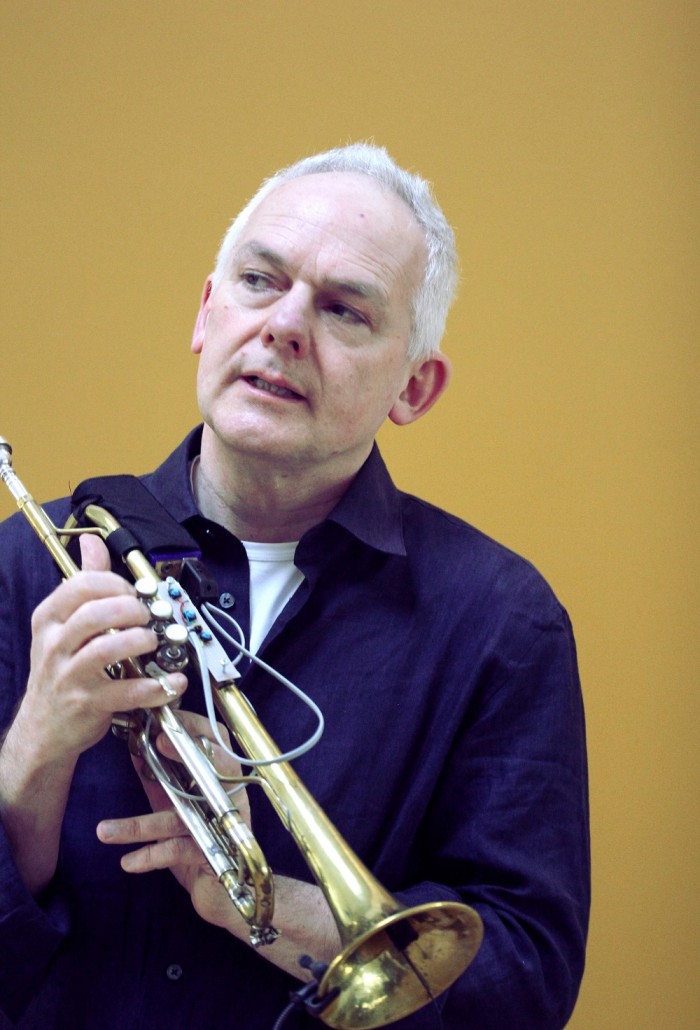
Date and location
from November 21, 2016 until November 23, 2016
Orpheus Instituut
Sound Work - Composition as Critical Technical Practice
Eventfrom November 21, 2016 until November 23, 2016ORCiM Seminar 2016
The 10th Orpheus Research Seminar offers the opportunity for contributors from around the world to gather and explore the theme of composition as critical technical practice.
This seminar – convened by Jonathan Impett - will consider composition as a research activity - a process informed by theory and intuition, constraint and contingency, expectation and experience. It is a continuous iterative process of inscription and reflection in which its models, metaphors, aspirations, obligations, tools and technologies all play a part. This process is distributed temporally, socially and materially. The artefacts of composition – however notated, improvised, virtual, embodied or technologically implemented – are hybrid technical objects. Neither pure ‘inspiration’ not unmediated formalism account for what they contribute. We might rather consider composition as a design process, and study its dynamics and decisions in the spirit of critical technical practice – a term coined by Philip Agre in his work on the creation of the artefacts of artificial intelligence.
Given the prominence of the work and its author, of originality and development in Western art music, we might expect composition to be seen as the very embodiment of the notion of music as knowledge-production. Practice-as-research and artistic research have reached a relatively mature stage of assimilation and consensus, and yet the role of composition as research remains much debated in some quarters, unhelpfully unclear in others. Is this a question of communication, of discourse, of process and reflection, of composition as a cultural activity, or of its wider intellectual context?
The self-reporting of composition tends to consider the areas in which it aspires to be innovative, or the theories – musical, aesthetic, social, scientific, technological – that have informed the work, rather than research aspects of the activity of composition itself. The knowledge presented in such cases often lies outside composition. There is no shortage of investigation of the ontology and epistemology of the ‘work’ as a persisting historical cultural phenomenon, but the technologies and context of composition have undergone a paradigm shift. The present, to repurpose a phrase, is another country. This seminar will consider composition as a research activity, as reflective critical making. Composition walks a tightrope between formalism and the arbitrary, a process informed by theory and intuition, constraint and contingency, expectation and experience. It is a continuous iterative process of inscription and reflection in which its models, metaphors, aspirations, obligations, tools and technologies all play a part. This process is distributed temporally, socially and materially. The artefacts of composition – however notated, improvised, virtual, embodied or technologically implemented – are hybrid technical objects. Neither pure ‘inspiration’ not unmediated formalism account for what they contribute. We might rather consider composition as a design process, and study its dynamics and decisions in the spirit of critical technical practice – a term coined by Philip Agre in his work on the creation of the artefacts of artificial intelligence.
Keynote speakers:
Nicolas Collins, Professor of Sound at the School of the Art Institute of Chicago (SAIC)
Alan Blackwell, Professor of Interdisciplinary Design, University of Cambridge
Registration
NOW CLOSED
General fee: € 50 (For docARTES students, Orpheus related researchers, teachers and students at Flemish conservatoires and all those who responded to the call for proposals, the general fee is waived)
Registration deadline: 20 November 2016


